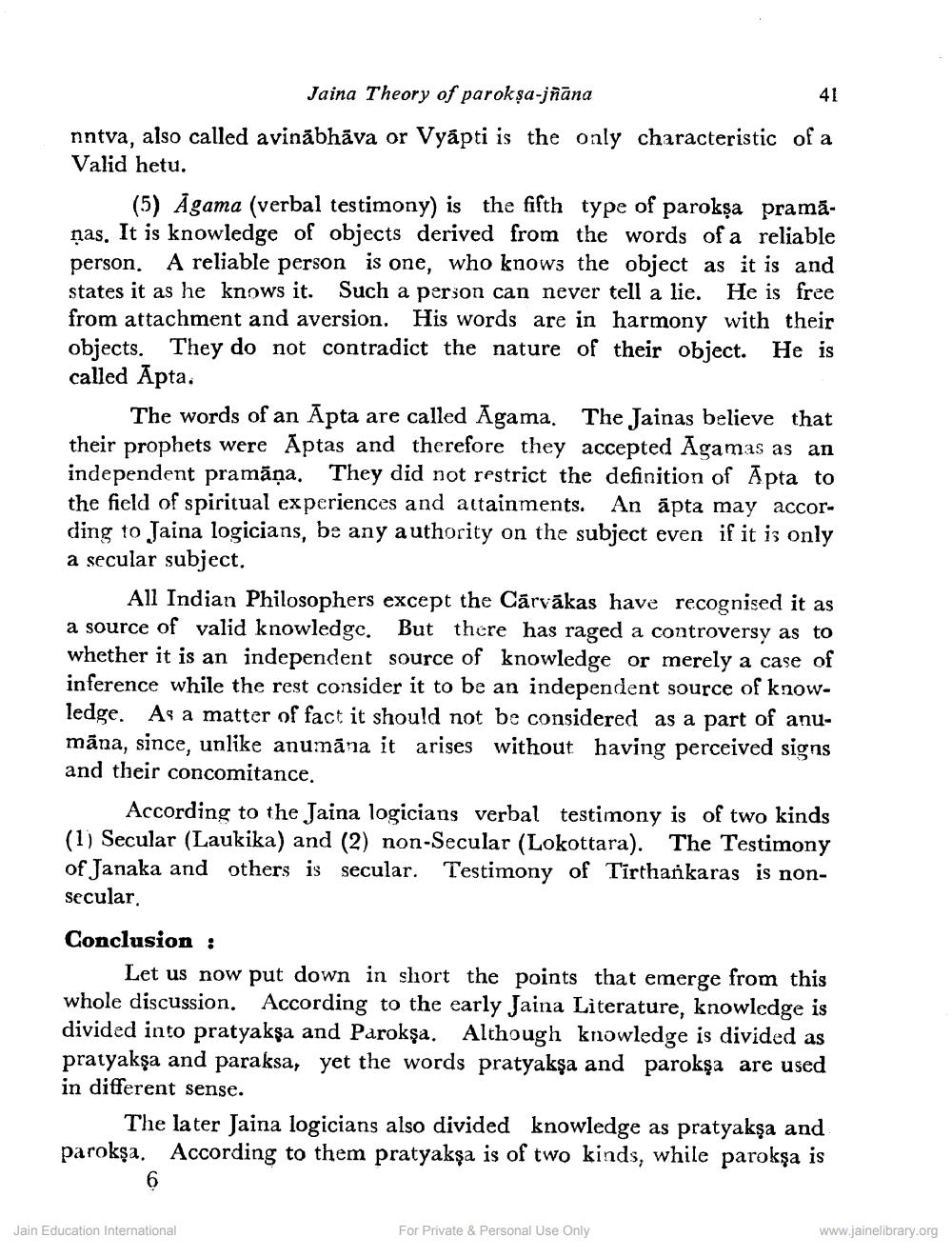Book Title: Jaina Theory of Paroksha Jnana Author(s): Goura Hajra Publisher: USA Federation of JAINA View full book textPage 6
________________ Jaina Theory of parokşa-jñāna nntva, also called avinābhāva or Vyapti is the only characteristic of a Valid hetu. (5) Agama (verbal testimony) is the fifth type of paroksa pramā. ņas. It is knowledge of objects derived from the words of a reliable person. A reliable person is one, who knows the object as it is and states it as he knows it. Such a person can never tell a lie. He is free from attachment and aversion. His words are in harmony with their objects. They do not contradict the nature of their object. He is called Āpta. The words of an Apta are called Agama. The Jainas believe that their prophets were Aptas and therefore they accepted Agamas as an independent pramāņa. They did not restrict the definition of Apta to the field of spiritual experiences and attainments. An āpta may according to Jaina logicians, be any authority on the subject even if it is only a secular subject. All Indian Philosophers except the Cārvākas have recognised it as a source of valid knowledge. But there has raged a controversy as to whether it is an independent source of knowledge or merely a case of inference while the rest consider it to be an independent source of knowledge. As a matter of fact it should not be considered as a part of anumāna, since, unlike anumāna it arises without having perceived signs and their concomitance. According to the Jaina logicians verbal testimony is of two kinds (1) Secular (Laukika) and (2) non-Secular (Lokottara). The Testimony of Janaka and others is secular. Testimony of Tirthařkaras is nonsecular. Conclusion : Let us now put down in short the points that emerge from this whole discussion. According to the early Jaina Literature, knowledge is divided into pratyakşa and Parokşa. Although knowledge is divided as pratyakşa and paraksa, yet the words pratyakşa and parokşa are used in different sense. The later Jaina logicians also divided knowledge as pratyakşa and parokşa. According to them pratyakşa is of two kinds, while parokşa is Jain Education International For Private & Personal Use Only www.jainelibrary.orgPage Navigation
1 ... 4 5 6 7
